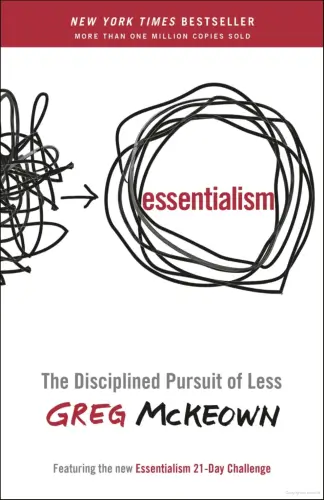
As a Man Thinketh
What is As a Man Thinketh about?
As a Man Thinketh is a timeless self-help classic that emphasizes the power of our thoughts in shaping our lives. James Allen explores the connection between our thoughts and our circumstances, highlighting the importance of taking control of our minds to create the life we desire. This book serves as a gentle reminder that our thoughts are the seeds of our actions, and by cultivating positive thoughts, we can transform our reality.
About the Author
James Allen was a British philosophical writer known for his inspirational self-help books, most notably "As a Man Thinketh." His writing style is characterized by clear, concise language and profound insights on the power of thoughts and mindset in shaping one's life. Allen's work often explores themes of personal responsibility, positive thinking, and the importance of self-reflection in achieving success and happiness. His timeless wisdom continues to resonate with readers seeking to improve their lives and achieve their goals.
10 Key Ideas of As a Man Thinketh
Cultivate Positive Thoughts
Your reality is largely shaped by your thoughts. By consciously directing your mind towards positive and constructive ideas, you can influence your actions and outcomes. This approach encourages personal growth and the achievement of goals. Negative thinking, on the other hand, can lead to undesirable results and hinder progress. It's crucial to monitor and adjust your thought patterns to foster a positive mindset.
Learn DeeperStart Your Day with Positive Affirmations: Begin each morning by affirming your worth, capabilities, and goals. Use statements like 'I am capable of achieving my dreams' or 'Today, I choose to focus on what I can control and let go of what I cannot.' This sets a positive tone for the day.
Practice Mindfulness and Meditation: Dedicate a few minutes daily to mindfulness or meditation. Focus on your breath and try to clear your mind of negative thoughts. When you notice your mind wandering to negative or unproductive thoughts, gently guide it back to a state of calm and positivity.
Keep a Gratitude Journal: Every evening, write down three things you're grateful for. This practice helps shift your focus from what's lacking or negative in your life to the abundance and positivity that exists, fostering a more optimistic outlook.
Surround Yourself with Positivity: Be mindful of the company you keep and the content you consume. Surround yourself with positive people and consume media that uplifts and inspires you. This can significantly influence your mindset and attitude.
Challenge Negative Thoughts with Evidence: Whenever you catch yourself dwelling on negative thoughts, challenge them. Ask yourself, 'Is this thought based on facts or assumptions?' Often, you'll find that your fears or negative beliefs are not fully grounded in reality, helping you to let them go.
- Example
If you're feeling overwhelmed by a project at work, instead of thinking 'I can't do this,' remind yourself of past successes and challenges you've overcome. Affirm to yourself, 'I have tackled difficult tasks before; I can do it again.'
- Example
When faced with criticism, instead of spiraling into self-doubt, use it as an opportunity to grow. Think, 'What can I learn from this feedback?' This shifts your perspective from viewing criticism negatively to seeing it as valuable feedback for improvement.
Embrace Responsibility for Your Circumstances
Acknowledge that your current situation is a result of your past thoughts and actions. This realization empowers you to take charge of your life. Understanding that you have the power to change your circumstances through altered thoughts and behaviors instills a sense of responsibility and control. Blaming external factors for your condition only leads to stagnation and prevents personal development.
Learn DeeperReflect Daily: Spend a few minutes each day reflecting on your thoughts and actions. Ask yourself how they are shaping your current circumstances and what you can do differently to create the life you desire.
Set Clear Goals: Clearly define what you want to achieve in different areas of your life. Break these goals down into actionable steps and work on them consistently.
Practice Mindfulness: Engage in mindfulness practices such as meditation or journaling to become more aware of your thought patterns. This awareness will help you identify and change negative thoughts that may be holding you back.
Take Small Actions: Start with small, manageable actions that align with your goals. Consistency in these actions will lead to significant changes over time.
Seek Feedback and Learn: Don't hesitate to ask for feedback from trusted friends or mentors. Use this feedback to learn and adjust your approach as necessary.
- Example
If you're unhappy with your current job situation, begin by identifying the thoughts and beliefs that may have led you to this point. Perhaps you've believed that you're not qualified for better opportunities. Challenge this belief by listing your skills and achievements, and then take action by applying for jobs that interest you, even if they seem slightly out of reach.
- Example
Suppose you're struggling with financial difficulties. Reflect on your spending habits and beliefs about money. If you find that impulsive buying is a problem, start by creating a budget and tracking your expenses. Set a goal to save a certain amount each month and find creative ways to reduce unnecessary spending.
Practice Self-Discipline
Self-discipline is essential for achieving any form of success. It involves controlling your thoughts, emotions, and actions to align with your goals. By mastering self-discipline, you can resist short-term temptations in favor of long-term achievements. This practice is fundamental in transforming desires into realities and is critical for personal and professional growth.
Learn DeeperSet Clear Goals: Start by defining what success looks like for you. Whether it's improving your health, advancing in your career, or learning a new skill, having clear, achievable goals is the first step towards practicing self-discipline.
Create a Daily Routine: Establish a daily routine that aligns with your goals. Include specific times for work, exercise, learning, and relaxation. Stick to this routine as closely as possible to build discipline.
Use Positive Affirmations: Remind yourself of your goals and the importance of self-discipline in achieving them. Use positive affirmations every morning to reinforce your commitment to your goals.
Limit Temptations: Identify what distracts you from your goals and find ways to limit these temptations. This might mean turning off notifications on your phone while working or avoiding junk food if your goal is to eat healthier.
Track Your Progress: Keep a journal or use an app to track your progress towards your goals. Celebrating small wins can motivate you to keep going, while identifying areas for improvement can help you adjust your approach.
- Example
If your goal is to get in shape, you might set a specific target like running three times a week. To practice self-discipline, you could lay out your running clothes the night before each run and track your progress in a fitness app.
- Example
For someone aiming to advance their career, self-discipline might involve dedicating an hour each day to professional development, such as reading industry-related articles or taking online courses. They could block out this time in their calendar to ensure they stick to it.
Nurture a Calm Mind
A calm and composed mind is more capable of clear thinking and decision-making. Stress and agitation cloud judgment and can lead to poor outcomes. By cultivating tranquility through practices like meditation, deep breathing, or mindfulness, you enhance your ability to think rationally and react appropriately to different situations. A serene mind is also more conducive to positive thinking and creativity.
Learn DeeperStart Your Day with Meditation: Dedicate the first 10-15 minutes of your morning to meditation. This can be as simple as sitting in a quiet space, closing your eyes, and focusing on your breath. It sets a calm tone for the day ahead.
Practice Deep Breathing: Whenever you feel stressed or overwhelmed, pause and take five deep breaths. Inhale slowly through your nose, hold for a few seconds, and exhale through your mouth. This can instantly reduce stress levels and clear your mind.
Incorporate Mindfulness into Daily Activities: Turn routine tasks into mindfulness exercises. For example, when you're eating, pay attention to the taste, texture, and aroma of your food. When walking, notice the sensation of your feet touching the ground. This helps keep you present and calm throughout the day.
Limit Exposure to Stressful Information: Be mindful of your consumption of news and social media. Limiting exposure to stressful information can help maintain a serene state of mind. Allocate specific times for checking these sources rather than constantly being on them.
Create a Relaxation Routine Before Bed: Develop a pre-sleep routine that promotes relaxation, such as reading, taking a warm bath, or practicing gentle yoga. This helps signal to your body that it's time to wind down, leading to a more peaceful mind at bedtime.
- Example
Imagine you're about to enter a meeting that you know will be challenging. Before stepping in, you find a quiet corner and take five deep breaths, focusing solely on your breathing. This simple act calms your nerves and clears your mind, enabling you to handle the meeting with composure.
- Example
You're stuck in traffic, feeling your stress levels rise. Instead of succumbing to frustration, you turn off the radio and practice mindfulness by paying attention to your breath and the sensations in your body. This helps transform a stressful situation into an opportunity for calm.
Deeper knowledge. Personal growth. Unlocked.
Unlock this book's key ideas and 100+ more. Learn with quick, impactful summaries.
Read Full SummarySign up and read for free!
As a Man Thinketh Summary: Common Questions
Experience Personalized Book Summaries, Today!
Discover a new way to gain knowledge, and save time.
Sign up for our 7-day trial now.
No Credit Card Needed

Similar Books

The Purpose Driven Life
Rick Warren
Eat, Pray, Love
Elizabeth Gilbert
The Power of Intention
Wayne Dyer
The Secret
Rhonda Byrne
The Road Less Traveled
M. Scott Peck
The Alchemist
Paulo Coelho
The Gifts of Imperfection
Brené Brown
Daring Greatly
Brené Brown
The Richest Man in Babylon
George S. Clason
The Power of Now
Eckhart Tolle
The Four Agreements
Don Miguel Ruiz
Wherever You Go, There You Are
Jon Kabat-ZinnTrending Summaries

Peak
Anders Ericsson
Never Split the Difference
Chris Voss
Smart Brevity
Jim VandeHei
The Psychology of Money
Morgan Housel
The First 90 Days
Michael D. Watkins
Atomic Habits
James Clear
Thinking, Fast and Slow
Daniel Kahneman
The Body Keeps the Score
Bessel van der Kolk M.D.
The Power of Regret
Daniel H. Pink
The Compound Effect
Darren Hardy
How to Win Friends & Influence People
Dale Carnegie
Eat That Frog!
Brian Tracy
The Magic of Thinking Big
David J. Schwartz
Drive
Daniel H. Pink
Essentialism
Greg McKeownNew Books

The Millionaire Fastlane
MJ DeMarco
Losing My Virginity
Richard Branson
Venture Deals
Brad Feld
48 Days to the Work You Love
Dan Miller
Anything You Want
Derek Sivers
Running Lean
Ash Maurya
Blitzscaling
Reid Hoffman
The Founder's Dilemmas
Noam Wasserman
Founders at Work
Jessica Livingston
The Startup Owner's Manual
Steve Blank
The Art of the Start 2.0
Guy Kawasaki
The Four Steps to the Epiphany
Steve Blank
Flash Boys
Michael Lewis
Crush It!
Gary Vaynerchuk
